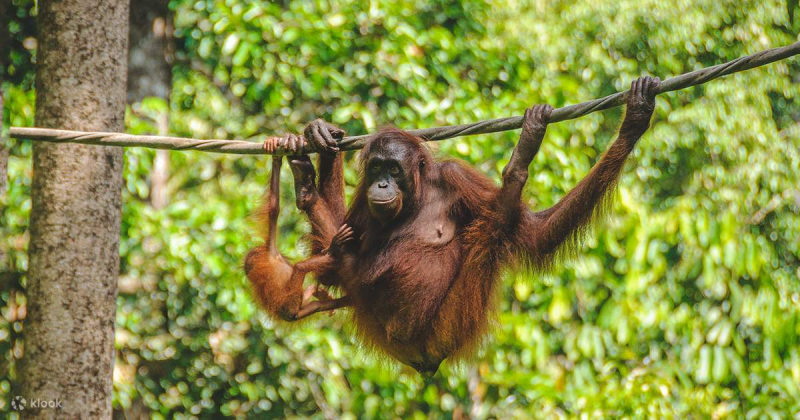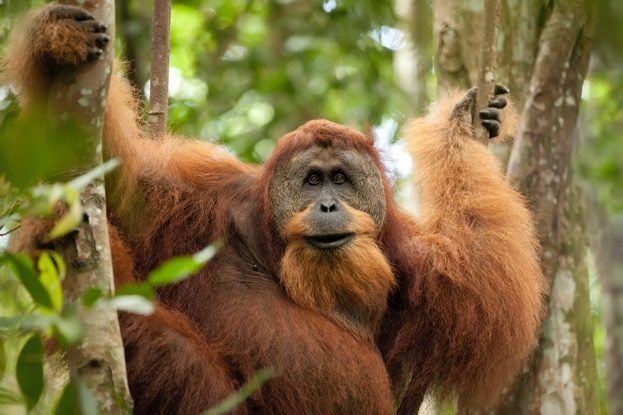Orangutans Are The Heaviest Tree-Dwelling Animal
One of the interesting facts about orangutans is they are the heaviest tree-dwelling animal. Male Bornean orang-utans (Pongo pygmaeus) and Sumatran orang-utans (P. abelii) are usually 1.5 m (5 ft) tall and weigh 83 kg (183 lb). They have opposable toes on their feet and can swing between trees with an arm reach of about 2 meters (6 feet). They eat fruit, tiny leaves, and tree bark. Females typically make nests in trees because they weigh less than adult males (37 kg or 81 lb), who typically rest on the ground.
The majority of an orangutan's life is spent swinging through the trees, therefore they require huge tracts of forest to find enough food and partners. The main dangers to orangutans are hunting and deforestation. Between 2010 and 2030, Borneo alone is expected to lose 220,000 km sq. of forest. This is a sizeable portion of its whole landmass and is larger than the entirety of the United Kingdom. Climate change is also increasing the frequency of forest fires, which is mostly for agriculture and infrastructure (like highways). The good news is that Borneo's deforestation appears to be slowing down, according to studies. Furthermore, stricter standards for protecting forests are being established in Malaysia and Indonesia.












